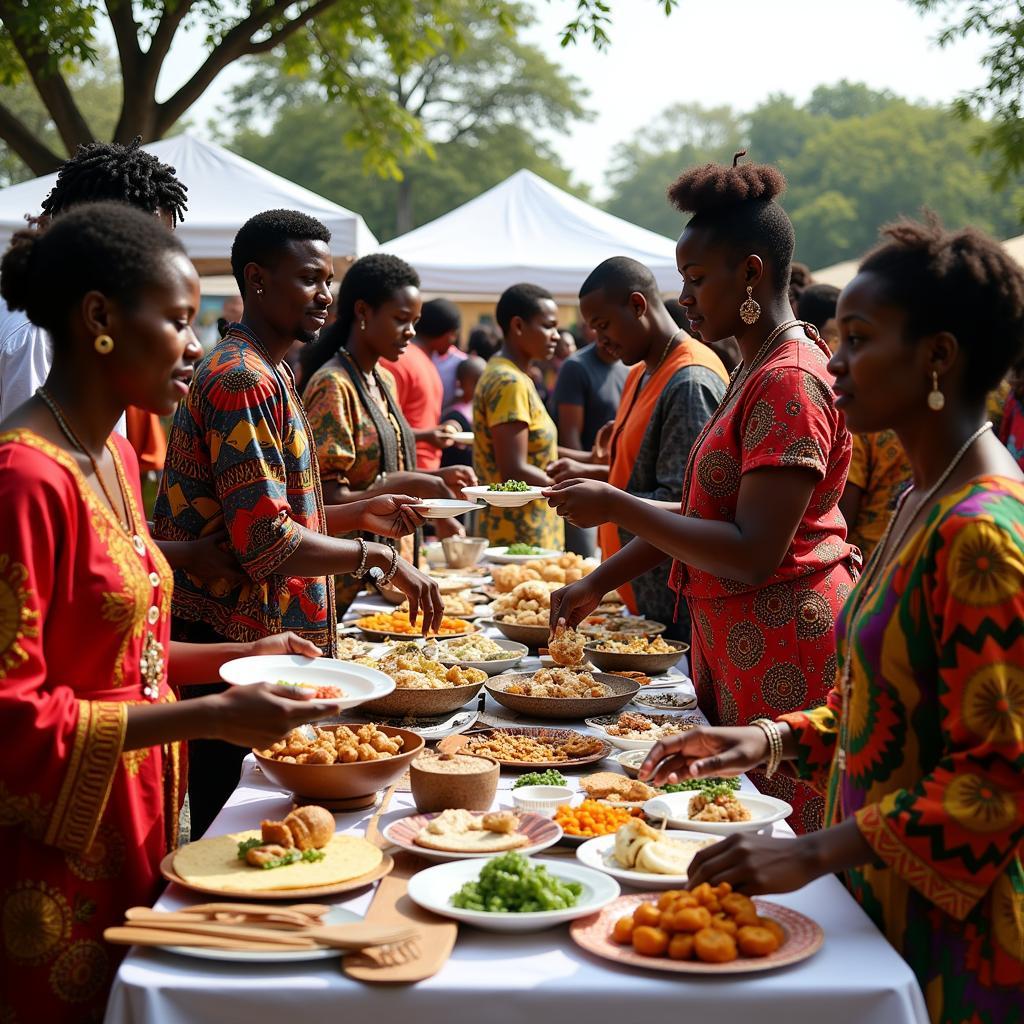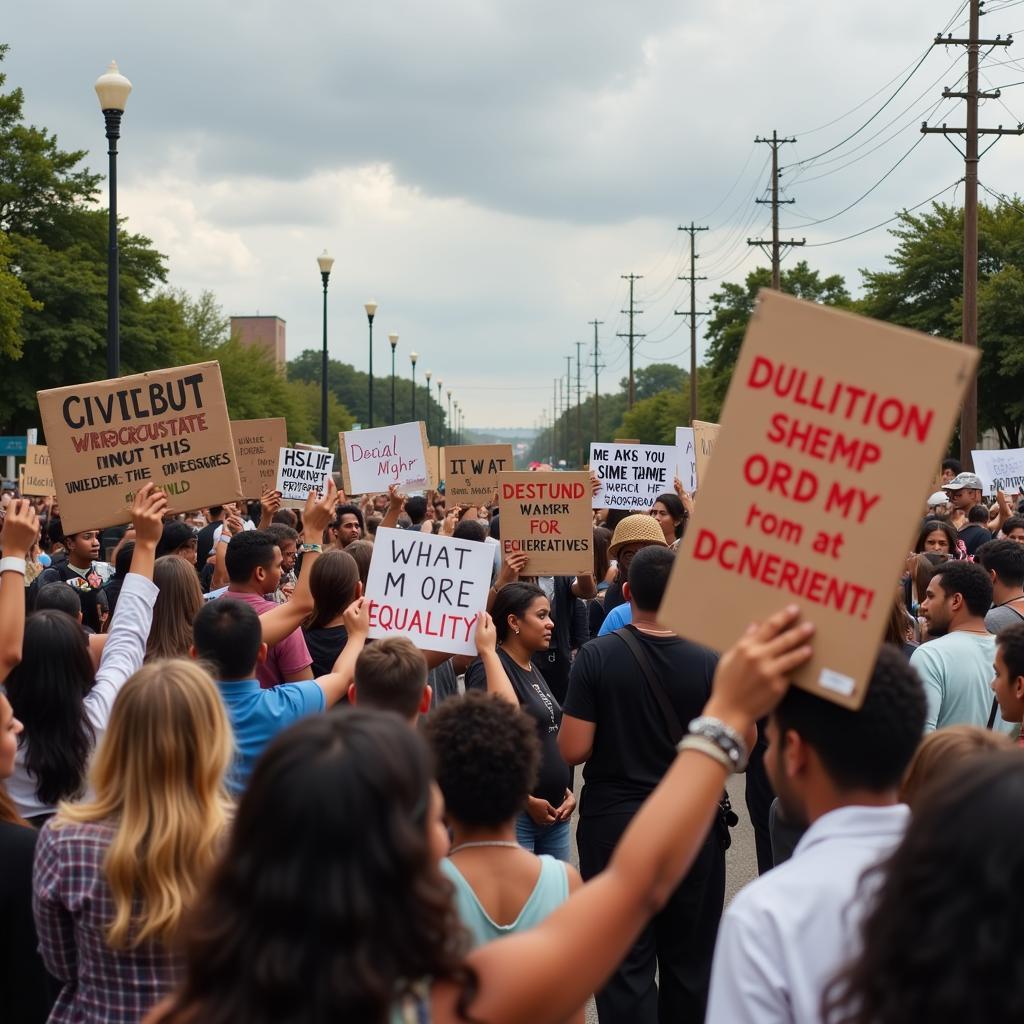The Harsh Reality of African American Slave Life
African American Slave Life was a brutal and dehumanizing experience that lasted for centuries. From forced migration and family separation to back-breaking labor and constant threat of violence, enslaved people endured unimaginable hardships. This article delves into the various facets of this dark chapter in American history, exploring the daily lives, struggles, and resilience of those who were enslaved.
The Peculiar Institution: A System Built on Injustice
The institution of slavery in America was deeply rooted in economic exploitation and racial prejudice. Enslaved Africans were considered property, not human beings, and were subjected to a system of laws and customs designed to maintain their subjugation. They were denied basic human rights, including the right to education, freedom of movement, and the right to family. The system was designed to profit from their forced labor, primarily in agriculture, particularly cotton production. This “peculiar institution,” as it was sometimes called, shaped the social, political, and economic landscape of the United States for centuries. What was daily life like for enslaved African Americans? They faced constant surveillance, brutal punishments, and the ever-present threat of being sold away from their families.
Daily Life Under the Shadow of Slavery
The daily lives of enslaved African Americans were marked by hardship and uncertainty. From sunrise to sunset, they toiled in fields, often under the watchful eye of overseers. Their work was physically demanding and dangerous, with little regard for their well-being. Beyond the fields, they also performed domestic labor, skilled crafts, and other tasks as required by their enslavers. What were the living conditions like? Enslaved people lived in cramped and unsanitary quarters, often with minimal food and clothing. Despite these harsh conditions, they found ways to maintain their dignity and cultural identity. They formed close-knit communities, practiced their traditions in secret, and passed down stories of their ancestors. african american family structure essay
Family and Community: Bonds of Resilience
Family and community played a vital role in the lives of enslaved African Americans. Despite the constant threat of separation, they created strong family bonds and support networks. They found solace in their shared experiences and drew strength from their cultural heritage. How did enslaved people preserve their culture? They maintained their traditions through storytelling, music, dance, and religious practices. These cultural expressions provided a sense of identity and continuity in the face of adversity.
Resistance and the Fight for Freedom
While slavery aimed to crush the spirit of enslaved people, it also ignited a powerful spirit of resistance. From subtle acts of defiance to organized revolts, enslaved Africans fought for their freedom in various ways. What forms did resistance take? Resistance ranged from work slowdowns and sabotage to escapes and armed uprisings. Figures like Harriet Tubman and Nat Turner became symbols of hope and inspiration for those seeking liberation.
The Underground Railroad: A Network of Hope
The Underground Railroad, a network of secret routes and safe houses, played a crucial role in helping enslaved people escape to freedom. This clandestine operation, facilitated by both Black and white abolitionists, provided a lifeline for those seeking a better life. How did the Underground Railroad operate? It relied on a system of coded messages, hidden trails, and the bravery of individuals willing to risk their own safety to help others escape.
Legacy of Slavery: A Continuing Struggle
The legacy of slavery continues to shape American society today. The systemic inequalities that existed during slavery have left a lasting impact on issues such as racial disparities in wealth, education, and the criminal justice system. How does the legacy of slavery manifest today? It can be seen in the ongoing struggles for racial equality and social justice, as well as in the efforts to understand and reconcile with this painful chapter in American history. african american women 1800 and african american writers played significant roles in this ongoing dialogue.
In conclusion, African American slave life was a tragic period of oppression and injustice. However, the resilience, courage, and unwavering spirit of enslaved people continue to inspire us today. Their fight for freedom serves as a reminder of the importance of equality, justice, and human dignity for all.
FAQ
- What was the Middle Passage?
- What were slave codes?
- How did enslaved people maintain their families?
- What were some common forms of slave resistance?
- What is the significance of Juneteenth?
- How did the Civil War impact slavery?
- What were the lasting effects of slavery on African Americans?
Do you have any other questions about African American slave life or related topics like african american gods and goddesses or the african jay ship?
When you need support, please contact Phone Number: +255768904061, Email: kaka.mag@gmail.com Or visit us at: Mbarali DC Mawindi, Kangaga, Tanzania. We have a 24/7 customer support team.



